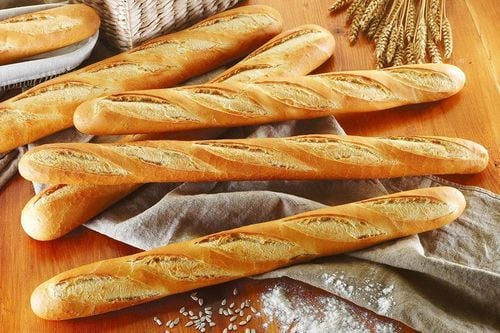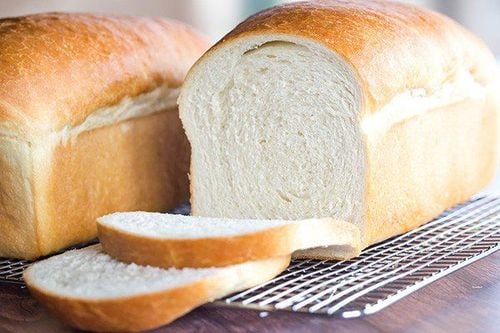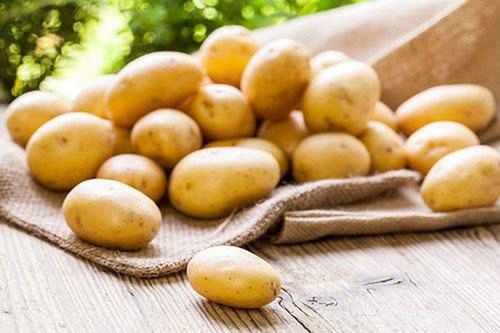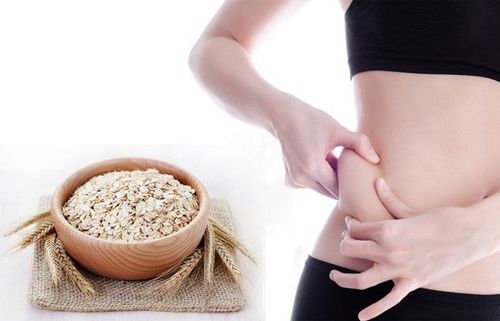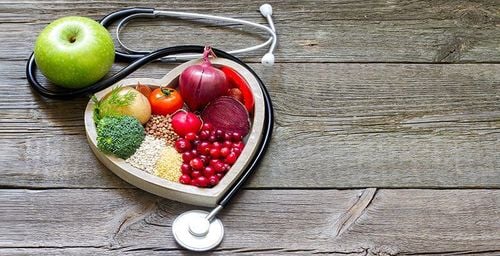This is an automatically translated article.
Food, starchy food is an important source of energy, extremely essential for the body. It is necessary to use starchy foods in a scientific way to both provide energy for the body and not gain weight.
1. What are the effects of starchy foods and foods?
Foods high in starch are an important source of energy for the body. When starch enters the body, it will be broken down into glucose - the main energy of the brain and muscles.
Besides, starchy foods also add essential vitamins and minerals for the body such as B vitamins, calcium, iron, folate,... In addition, they also provide good fiber content for the system. digestion, reduce the risk of cardiovascular disease, prevent stroke and colon cancer, control diabetes,... If you cut starchy foods out of your diet for a long time, people users may face health problems such as bad breath, fatigue or nervous tension,...
2. Starchy foods
2.1 Potato Potatoes are a starchy food that is a rich source of energy, fiber, B vitamins, manganese and potassium. Accordingly, you should prepare potatoes by boiling, baking or mashing, stir-frying, without adding salt, adding a little fat or oil. Potato chips or processed potatoes with a lot of salt and oil are not good for health.
When processing potatoes, use less fat or use polyunsaturated fats such as olive oil, sunflower oil. With mashed potatoes, use low-fat milk instead of whole milk or cream. When boiling potatoes, some nutrients can escape with the water (especially if peeled) so only boil the potatoes with enough water to cover the potatoes and do not boil for too long.
Pay attention to store potatoes in a cool, shaded and dry place so that potatoes do not sprout. Potatoes that are green, damaged or sprouted should not be eaten as they may contain harmful toxins.
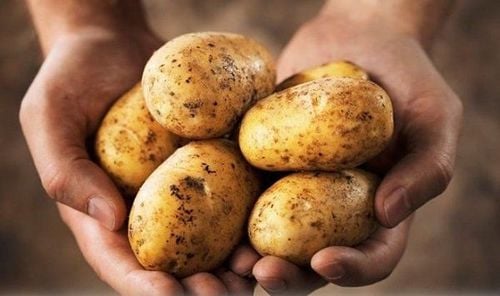
Khoai tây là một thực phẩm giàu tinh bột cùng với nhiều chất dinh dưỡng khác
2.2 Bread Bread, especially bread made with whole grains, nuts, etc., is a healthy choice for a nutritionally balanced diet. They provide a lot of energy, B vitamins, vitamin E, fiber and many essential minerals for the body.
White bread also contains many vitamins and minerals, but it has less fiber than brown bread or bread made with whole grains or whole wheat flour. If you like to eat white bread, you should choose a bread with more fiber. Bread can be stored at room temperature and should be eaten before its expiry date.
2.3 Cereal preparations Grain preparations are made from grains. Whole grains provide plenty of daily fiber, iron, B vitamins and protein.
Wheat, barley, oats, rye and rice are common grains that can be considered whole grains. Whole grain flour products from the above grains would be a healthy choice. Besides, corn and tapioca are also healthy cereal products.
As for refined grains with low whole grain content, containing a lot of salt and sugar, they should not be used in excess to avoid negative health effects.
2.4 Rice Rice is a great choice among starchy foods. They provide a lot of energy, are rich in fiber, B vitamins and low in fat. There are many types of rice to choose from such as basmati rice, long grain rice, brown rice, short grain rice, etc. 100g of uncooked rice contains 80.4g of carbs, of which 63.6% is starch. When cooking rice, the starch content in rice drops suddenly because it contains starch molecules that absorb water and are broken down during the cooking process.
Accordingly, you need to be careful when storing cooked rice. If rice is left at room temperature, fungal spores, mold, and bacteria can multiply, creating toxins that cause vomiting and diarrhea. Reheating may not remove these toxins. Therefore, it is best to eat rice immediately after it is cooked. If not serving immediately, refrigerate the rice within 1 hour of cooking, keep it in the refrigerator, and reheat for later.
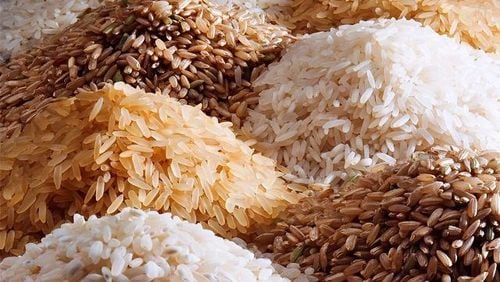
Gạo cung cấp tinh bột và chất xơ và một số chất có lợi khác cho người dùng
2.5 Noodles Noodles are also a starchy food made from flour and water, containing iron and vitamin B. Dried noodles can be stored under normal conditions and have a long shelf life. Fresh noodles need to be refrigerated and have a shorter shelf life.
MORE: Potatoes, bread, rice, pasta and other starchy carbohydrates
2.6 Other starchy foods In addition to the foods above, the starchy foods are listed below here:
Biscuits: A snack containing a lot of refined starch. 60g of biscuits contains about 42.8g of starch. However, cookies are often made with refined flour, which can cause blood sugar spikes, which can lead to type 2 diabetes; Flour: A very versatile baking ingredient. Flour has many different types such as wheat flour, plain rice flour, glutinous rice flour, etc. They also often contain a lot of starch; Oats are one of the healthiest whole grains. Oats provide a large amount of fiber, protein, fat, many important vitamins and minerals for the body. At the same time, oats also help lose weight, reduce blood sugar, reduce the risk of cardiovascular disease; Instant noodles: A highly processed food, low in nutrients, high in fat and carbs. Most of the carbs from instant noodles come from starch. 1 pack of noodles can contain 47.7g of starch. Many studies show that eating instant noodles more than twice a week increases the risk of metabolic syndrome, diabetes and heart disease; Corn: High in starch, 141g of corn kernels contains 25.7g of starch. Although rich in starch, corn is very nutritious, suitable for adding to the family's diet. Corn is rich in fiber, folate, phosphorus, potassium,... Starch is one of the ingredients that provide essential energy for the body. Eating starchy foods in a reasonable amount will help balance the body's nutrition, bring about good health and a healthier physique.
Please dial HOTLINE for more information or register for an appointment HERE. Download MyVinmec app to make appointments faster and to manage your bookings easily.
References: nutrition.org.uk, nhs.uk, healthline.com



